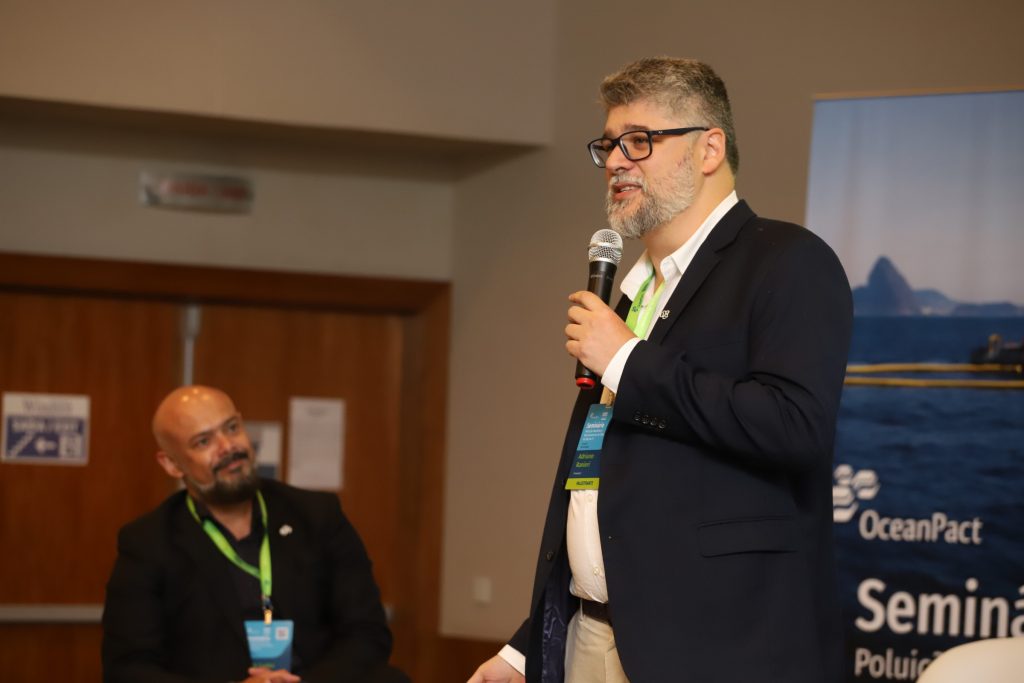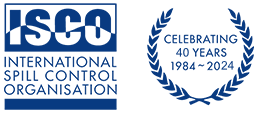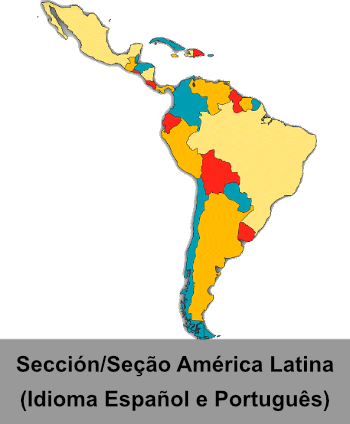Ed Levine – Member ISCO Council
Title: Oil in the Sea IV Update
Date Tuesday, May 14th – 3.30 PM to 5.00 PM
Abstract:
ISCO Council member, Ed Levine, will be both Facilitator and presenter on a Special Session at IOSC 2024 discussing the updated Oil in the Sea (OITS) IV report.
Ed, a respected Oceanographer with many years of experience as a responder and manager at NOAA. He explains the purpose of the session:
“The panel will be summarising the latest National Academies of Science, Engineering, and Medicine (NASEM) OITS report covering the committee’s recommendations for reducing the input of oil into seas, as well as improving the understanding of the effects of oil in the marine environment. NASEM undertook this study by creating an inventory of the sources, types, and quantities of hydrocarbons entering the marine environment. The committee also assessed the state of the science that investigates the fate and effects of hydrocarbons in the marine environment and on humans and wildlife. The committee will be covering all these aspects in their presentations, which will be followed by a panel discussion on the OITS report and its implications and impacts. The audience will be able to participate in a Q&A session with the panel.
“I very much look forward to seeing my fellow ISCO members and other colleagues at the session and fielding their questions,” says Ed with a smile.
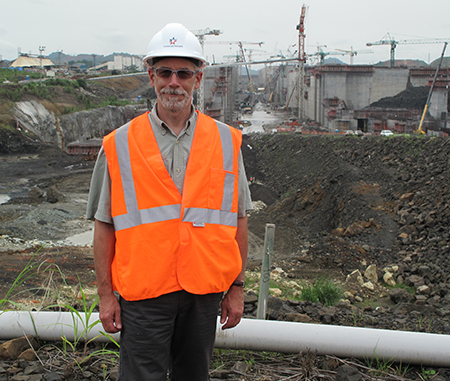
Carlos Sagrera – ISCO Latin America Representative
Title: Tier II – Tier III Dilemma State and Oil Industry in Latin America: The Peruvian Case
Date: Wednesday, May 15th – 1.30 PM to 3.00 PM
Abstract:
Peru, a mining and oil country in constant growth, with notorious political instability, on 15 January 2022 had the largest oil spill in its history in its marine waters, on the North coast of Port El Callao. With a completely outdated National Contingency Plan (1993), Peruvian authorities logically did not apply it. The article describes the characteristics and possible causes of the incident, then focuses on the capabilities, implying the available resources, which were implemented in stages by the oil company and endorsed by the Peruvian authorities. Following IPIECA’s latest criteria, we present its concentric and evolutionary circle model applied to the Peruvian case, which allows us to visualize the 15 capacities that were applied (Fig.1-p.12). Thus, it can be seen that the country’s capabilities were not up to the task of risk management, which was only outlined previously but not assessed. With active and latent errors outlined here, as well as some positive aspects of management, it is concluded that this was a true Tier III incident and a “Worst Case Scenario” for Peru. As DWH (2010) for the U.S., the oil industry, maritime and environmental authorities, as well as the organizations in Latin America (ARPEL-ROCRAM), have learned multiple lessons from this incident and should serve to review procedures and protocols.

Juan Carlos Rivera – ISCO Member
Title: The Construction of a Paradigm in Latin America: The Honduras Model of Oil Pollution and HNS Control
Date: Tuesday, May 14th – 1.30 PM to 3.00 PM
Abstract:
While it is true that oil pollution does not respect national borders, it is no less true that existing State asymmetries -based on certain economic, legal, and governmental peculiarities – have a direct impact on the capacity to prevent and control oil pollution.
The best tool for levelling out these differences and standardization is offered through International Maritime Conventions. However, States must incorporate these international guidelines not only to their legislation, but also to government budgets and an administrative structure that does not necessarily have the necessary tools to translate words into action.
Faced with this reality, the question is how to address these situations and the lack of economic capacity, logistics and expertise to achieve a genuine national prevention and response capacity.
In some Latin American countries, in Central America as a whole and in Honduras in particular, it is difficult to include in its public budget, the acquisition and maintenance of specialized equipment or the training of public officials, who could carry out permanent operational functions of a preventive or reactive nature.
This situation has led us to rely on the limited response capacity of shipowners, terminals, importers, exporters, insurers, and their financial capacity. Of course, at first sight it seems logical to draw the thread of the “polluter pays” principle, but in practice we have found that the ability to pay does not necessarily translate into the ability to deal with a spill immediately and effectively.
We came to recognize that it is essential to have disposition of equipment and personnel on site 24/7, and that this comes at a cost. Therefore, we are progressively qualifying the “polluter pays” approach and incorporating the practical formula of “potential polluter pays” into our policies through the inclusion of the OSRO approach and the “standby” service fee.
In the search for a real response capacity, Honduras -through consensus with the private sector and agencies of the National Maritime Administration- has introduced a series of regulations:
1.- National Contingency Plan (2014).
2.- DGMM-022/2015: Exporters and importers of oil and HNS are obliged to have their own equipment and qualified personnel (24/7) or to designate a previously approved OSRO to ensure the effectiveness of Contingency Plans, which in turn are approved by the Maritime Authority.
In the case of vessels, OSROs must be designated to ensure response capability in the event of an oil/HNS spill contingency.
3.- DGMM-022/2015: Establishes the minimum criteria to be met by OSROs to be authorized by the Maritime Authority.
4.- DGMM-018/2017: A tax rate of 12.5% of the OSRO’s income is established for the purpose of feeding a fund aimed at strengthening the activities of prevention and control of oil spills and attention to spills of unknown origin.
5.- DGMM-004/2018: The use of the Spill Response Contract RESPONSECON (ISCO-BIMCO) is adopted at national level as the standard contract in the event of an oil/HNS spill.
Firm steps have been taken, but there is still a long way to go.
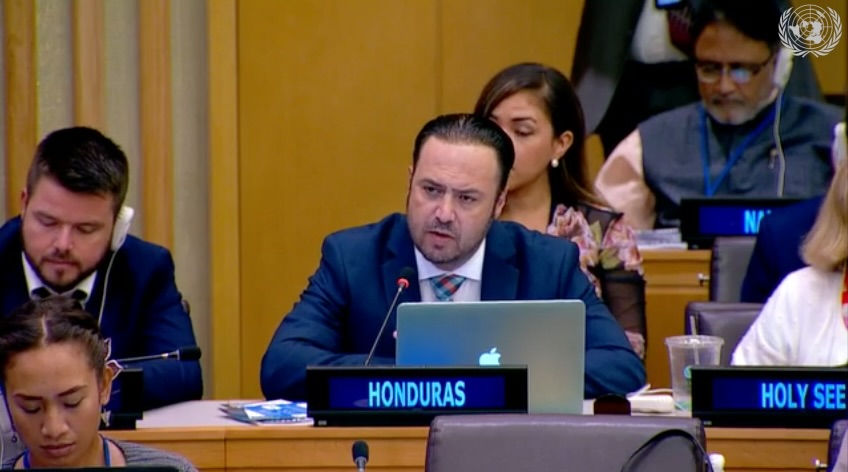
Merv Fingas – Member ISCO Council
Title: Smoke Reduction for In-situ Burning
Date: Thursday, May 16th – 10.00 AM to 11.30 AM
Abstract:
Reducing of smoke emission from large scale hydrocarbon burning is possible using ferrocene as a catalyst additive.
Ferrocene is a low toxicity organometallic, chemical insoluble in water and weakly soluble in hydrocarbons. It is burned up in the flame being converted into iron oxide and so has a low environnmental impact. Techniques for applying this technology for oil spills on land are being studied at the new testing facility near Edmonton in Canada funded by the Canadian Multi-Partner Research Initiative. This testing program is focused on using ferrocene encapsulated in an inert but porous material and also ferrocene incorporated into an absorbent material. The latter will improve burning efficiency by acting as wicking agent. The paper presents the first results of this project together with an overview of the facilities available for fire training at the Lakeland College Emergency Training Centre. Future plans are also discused.
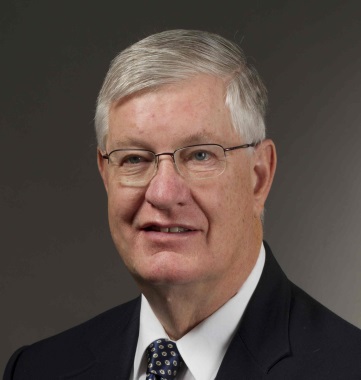
Patricia Charlebois (IMO) – ISCO Partner
Title: Back to Basics: Revisiting the International Convention on Oil Pollution Preparedness, Response and Co-operation (OPRC 90)
Date: Wednesday, May 15th – 1.30 PM to 3.00 PM
Abstract:
Not long after the US passed the Oil Pollution Act of 1990, the International Maritime Organization (IMO) adopted the
International Convention on Oil Pollution Preparedness, Response and Co-operation (OPRC 90). OPRC 90 entered into force in 1995 after 15 countries ratified it. A Protocol to OPRC 90 relating to HNS (the OPRC-HNS Protocol) was adopted on 2000. There are 112 States that are parties of the Convention. This paper highlights some of industry´s initiatives with IMO in the Wider Caribbean Region, with particular focus on the challenges to enhance and sustain preparedness and response progress in a region of significant exploration, production, shipping and terminal activities.
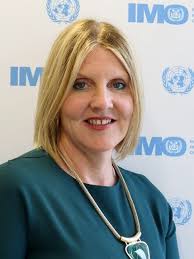
Paul Schuler (OSRL) – ISCO Partn
Title: Assessment of the Wider Caribbean Region´s Oil Spill Preparedness and Response Capacity
Date: Tuesday, May 14th – 1.30 PM to 3.00 PM
Abstract:
The Wider Caribbean Region (WCR) is an ecologically important and unique area that is highly vulnerable to the impact of oil spills. The Interim Support Project (ISP) is a voluntary initiative managed by IPIECA and funded by operators BP, Chevron, Exxon Mobil, Oxy, Shell and Total Energies. The project´s aim is to assess the present status of Oil Spill Preparedness and Response (OSPR) capabilities in the WCR at both national and subregional levels as a prerequisite to develeoping initiatives to advance capacity building to throughout the region. We divided the project into three phases with individual objectives and timelines for each phase. Phase 1 sought to identify major maritime and petroleum infrastructure to gain a 20.000 foot perspective on the marine and maritime rsik profile. This included cargo and tanker shipping lanes, offshore exploration and production sites, marine terminal, oil transshipment facilities and coastal refineries. Having identified elevated risk areas (and capacity gaps). Plase 2 outlined potential partnership activities, such as the suite of the international conventions, the IPIECA´s Global Initiative, the IMO´s RAC/REMPEITC, and others to improve national and sub-regional preparedness. Finally, Phase 3 provides key outcomes and a set of recommendations for decision-makers to decide how best to engage stakeholders and advance preparedness in the region. This paper briefly reviews our objectives and methodology and provides the key findings and outcomes of the study. It serves as an overview and guide for industry engagement in the region and for improving transboundary response. This project´s assessment phase has completed and ongoing engagement will occur throughout 2024.
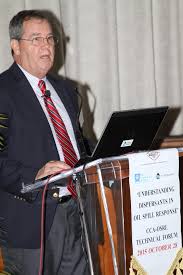
Adriano Raineri, Pedro Martins & Pedro Peres (Team EnvironPact of OceanPact) – ISCO Corporate Membe
Title: Vessels of Opportunity Pionner Project in Brazil: A 5-year Critical Review and Lessons Learned
Date: Wednesday, May 15th – 3.30 PM to 5.00 PM
Abstract:
The Mar Atento Project was designed and implemented with the objective of engaging and training the Brazilian artisanal fishing community to respond to an oil spill affecting the Brazilian coastal waters. After 5 years, up to 500 people were engaged, 294 fishing community members were trained, and 93 Vessels of Oportunity (VoO) were registered in a Geodata bank improving the overall preparedness and decision-making process in the event of an oil spill. The project is based in four major milestones: (i) Survey of secondary and primary data for project planning and detailed design, including but not limited to local fishing community, local logistics and supply chain; (ii) Implementation of several engagements efforts, principally the Expo Mar Atento Exhibition; (iii) Preparation and execution of a customized theoretical and practical training focused on the operational concepts of an oil spill response in a shoreline environment; (iv) Lessons Learned event, where the fishing community watch a video highlighting the activities they participated in during the earlier phases of the project. Additionally, they receive a photo book
and have the opportunity to share their impressions about the project. This sequential approach has been a key succes factor for the project. It enables engagement of the fishing community and individuals in a step-by-step and methodical process, building a proper level of relationship and familiarity before building competency. Although meeting its goals and its great acceptance, the project also provided some future challenges: increasing the training frecuency, necessity of defining a method for the database maintenance,and a mechanism to allow the inclusion of the fishing community in regular industrial drills and exercises
